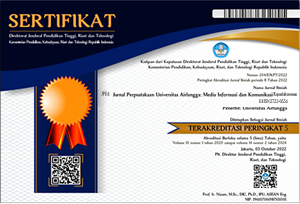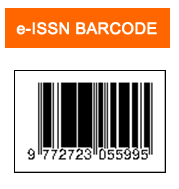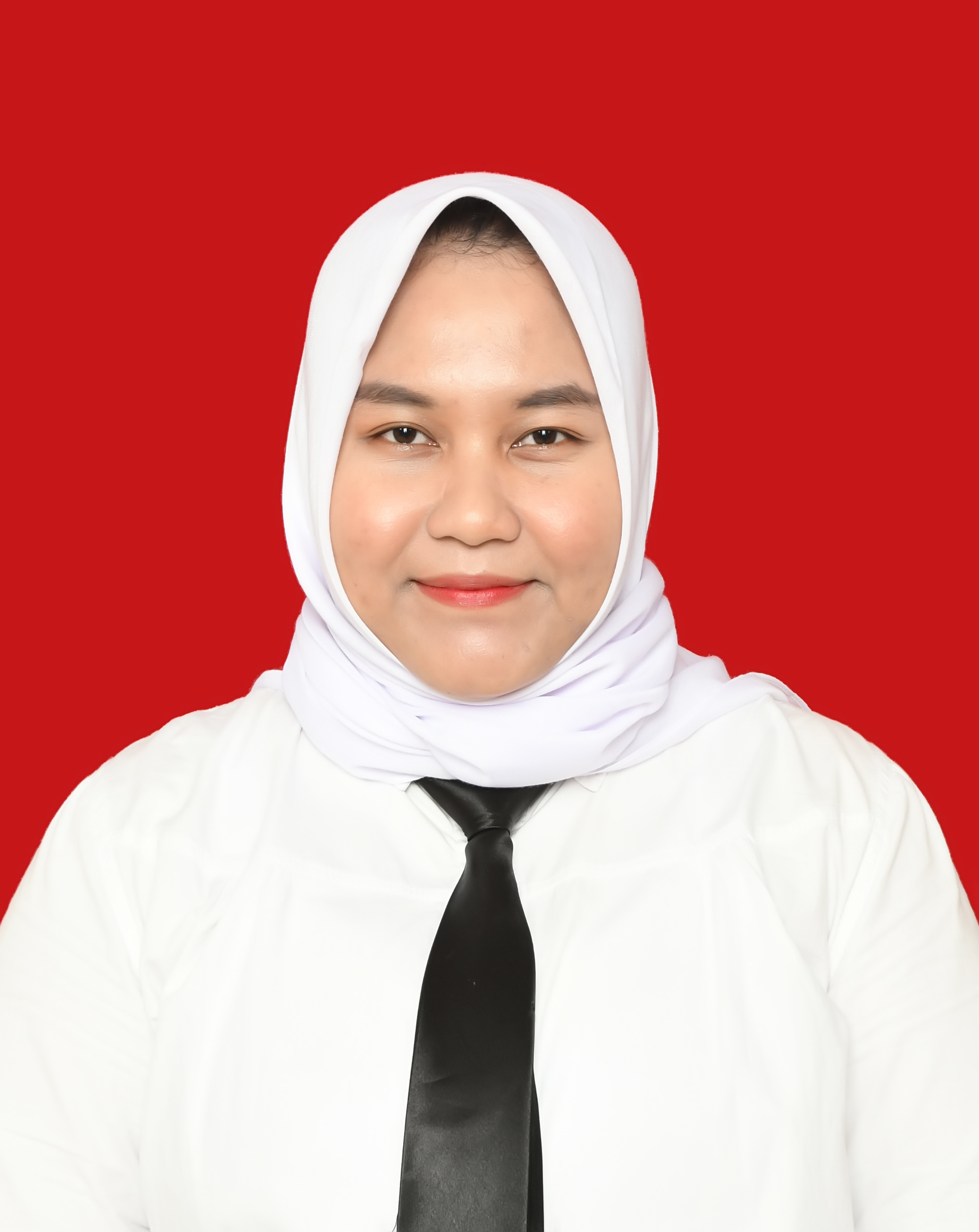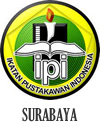Evaluation of Virtual National Seminar Implementation: Building a Digital Metaverse Ecosystem in Libraries
Downloads
ABSTRACT
This study aims to get an overview of the implementation of the National Seminar: Building a Digital Metaverse Ecosystem in Libraries. The description of the implementation becomes the basis of measuring the level of success of the seminar. Excess becomes something that should be maintained and improved. The deficiencies become a reflection and input for the implementation of the next seminar. This research was conducted using a descriptive approach and quantitative research methods. The instrument used was a questionnaire/questionnaire using a Likert scale. Research respondents were seminar participants that were present at the time of implementation and obtained 51 respondents that filled out the survey link. The data collected is quantitative data, processed using SPSS 20 and then analyzed descriptively. The theory used as the basis is the Technology Acceptance Model (TAM) Theory. The results of the analysis show that the implementation of the seminar has gone well and the material presented can answer the needs of the participants. The topics presented attracted the interest and information needs of seminar participants. The material is in accordance with the objectives of the seminar, which is to answer the challenges to community need in the Society 5.0 era. The resource person conveys the material in a clear, easy to understand, structured manner and understands the topic he conveys. Likewise, the quality of the audio and images is interesting enough to make participants comfortable and make it easier to understand the material presented. In general, the results of this research will help the organizers of carrying out the next seminar even better.
Keywords: metaverse, digital ecosystem, library, society 5.0, Technology Acceptance Model
EVALUASI PELAKSANAAN SEMINAR NASIONAL SECARA VIRTUAL: MEMBANGUN EKOSISTEM DIGITAL METAVERSE DI PERPUSTAKAAN
ABSTRAK
Penelitian ini bertujuan untuk mendapatkan gambaran pelaksanaan Seminar Nasional: Membangun Ekosistem Digital Metaverse di Perpustakaan. Gambaran pelaksanaan menjadi dasar untuk mengukur tingkat keberhasilan seminar. Kelebihan menjadi suatu yang patut dipertahankan dan ditingkatkan. Adapun kekurangan menjadi refleksi dan masukan untuk pelaksanaan seminar berikutnya. Penelitian ini dilakukan dengan menggunakan pendekatan deskriptif dan metode penelitian kuantitatif. Instrumen yang digunakan adalah angket/kuesioner dengan menggunakan skala linkert. Responden penelitian adalah peserta seminar yang hadir pada saat pelaksanaan dan diperoleh 51 responden yang mengisi link survei. Data yang dikumpulkan merupakan data kuantitatif, diolah menggunakan SPSS 20 dan selanjutnya dianalisa secara deskriptif. Teori yang digunakan sebagai landasan adalah Teori Technology Acceptance Model (TAM). Hasil analisa menunjukkan bahwa pelaksanaan seminar telah berjalan dengan baik dan materi yang disampaikan dapat menjawab kebutuhan peserta. Topik yang disampaikan menarik minat dan kebutuhan informasi peserta seminar. Materi sesuai dengan tujuan seminar yaitu menjawab tantangan kebutuhan masyarakat di era Society 5.0. Narasumber menyampaikan materi secara jelas, mudah dimengerti, terstruktur dan memahami topik yang disampaikannya. Demikian juga kualitas audio dan gambar yang cukup menarik membuat nyaman peserta dan memudahkan dalam memahami materi yang disampaikan. Secara umum hasil penelitian ini akan membantu penyelenggara dalam melaksanakan seminar berikutnya menjadi lebih baik lagi.
Kata kunci: metaverse, ekosistem digital, perpustakaan, society 5.0, Technology Acceptance Model
Bungin, B. (2019). Metodologi Penelitian Kuantitatif. Jakarta: Prenadamedia Group.
Davis, F. D. (1989). Perceived usefulness, perceived ease of use, and user acceptance of information technology. MIS Quarterly: Management Information Systems, 13(3), 319–339. https://doi.org/10.2307/249008
Djunaedi, A. (2022, September). Perpustakaan di Era Metaverse. Seminar Nasional Membangun Ekosistem Digital Metaverse Di Perpustakaan.
Giap, Y. C., Riki, Kurnaedi, D., Nursanty, E., Nugroho, M. A., Simarmata, J., & Ardilla, Y. (2020). Cloud Computing: Teori dan Implementasi (T. Limbong (ed.); 1st ed., Vol. 108). Yayasan Kita Menulis.
Ginting, R. T., Santoso, S. P., & Samosir, F. T. (2022). Library Paradigm and Challenges Towards the Era of Metaverse Society. https://www.researchgate.net/publication/365833609
Laksmi, V. (2001). Studi Tentang Pemanfaatan Koleksi Majalah Ilmiah di Perpustakaan Universitas Kristen Satya Wacana. Bandung: Universitas Padjajaran.
Nugrohoadhi, A. (2022). Perpustakaan dalam Bayang-bayang Transformasi Metaverse. 31(2). https://doi.org/10.22146/mi.v31i2.5235
Pimentel, D., Fauville, G., Frazier, K., McGivney, E., Rosas, S., & Woolsey, E. (2022). An Introduction to Learning in the Metaverse. Meridian Treehouse. https://www.meridiantreehouse.com/metaverse-education-guide
Teja, T., & Francois, R. (2022). Mengerti Metaverse (V. Elsandra H (ed.)). PT Elex Media Komputindo.
Tri Susiati, Anastasia. (2022). Metaverse Diseminasi Dokumen dan Pewartaan Gereja. Praba, Maret 1 – 2022 Tahun 72, No. 5, 37.

This work is licensed under a Creative Commons Attribution-NonCommercial-ShareAlike 4.0 International License.
1. The journal allows the author to hold the copyright of the article without restrictions.2. The journal allows the author(s) to retain publishing rights without restrictions
3. The legal formal aspect of journal publication accessibility refers to Creative Commons Attribution- NonCommercial-ShareAlike: CC BY-NC-SA





















